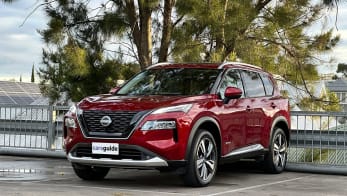If you were to use the famous analogy of the Tortoise and the Hare to explain the electric car race, it’s pretty obvious which animal represents Toyota and which one is Tesla.
There is no doubt Tesla is winning the EV race at the moment, the American brand dominates both here and overseas with its fast-paced focus on its two model strategy. Toyota, meanwhile, is very slowly getting off the mark, finally introducing its first EV - the oddly-named bZ4X - just a few weeks ago.
It seems like a strange strategy from Toyota, after all, this is the brand that popularised hybrids and in doing so made the Prius an awkward and unlikely poster child for environmentally friendly motoring.
And yet, when the EV revolution began, Toyota sat on its hands.
For years journalists, including yours truly, asked over and over again, why wouldn’t Toyota press its advantage and lead the charge (pun intended) into the all-electric space? They were already seen as the technology leaders in hybrids, so why concede ground to an upstart like Tesla? It just didn’t make sense… until it did.
Looking at the sales charts there is no question EVs are on the rise, enjoying significant year-on-year growth as more and more buyers take the plunge. However, it’s still a very small percentage of overall sales, just 7.1 per cent of all new cars sold in 2023. And of that percentage, Tesla accounted for 52.8 per cent of all EVs sold in Australia.
Notably, Tesla’s share is dropping, from 58.6 per cent in 2022 to 50.2 per cent year-to-date to March, but it’s still clearly the market leader and the de facto choice for so many.

Which is why Toyota’s ‘multi-pathways’ strategy may ultimately be the best one. Regardless of how you feel about climate change and the long-term impact on the planet we all share, remember that Toyota’s priority is selling cars, not saving the environment, which may sound harsh but it’s the cold, hard truth.
Looking at the sales figures for 2023 again, and while EVs made up just 7.1 per cent of the 1.2 million new cars sold, petrol and diesel vehicles still accounted for 79.4 per cent, the overwhelming majority. If Toyota wants to maintain its position of selling cars by the boat-load, then sticking with petrol and diesel engines for the short-term is the only option.
The other hard truth of the Australian car industry is we’re lagging well behind other development markets when it comes to promoting EVs and investing in infrastructure. It certainly hasn’t helped that EVs have become a political football both outside and within the industry itself.

The recent campaign by the Federal Chamber of Automotive Industries against the government’s new emissions standards saw it repeatedly belittle EV sales, showing the peak body isn’t united on promoting this technology (totally unrelated… but it should be pointed out at this point that the FCAI board is currently headed by representatives from Mazda and Toyota - which have one EV on sale between them, so make of that what you will…).
Sticking to what’s working now and pumping out petrol and diesel models as fast as buyers want them is only part of the reason Toyota’s long-term strategy may be the winning one. The other element to consider is that the brand’s that have wholeheartedly committed to EVs now are the ones investing billions in new technology, which will likely get superseded in the near-future anyway.

To make a crude analogy, Toyota can sit back and sell its internal combustion engines and then just copy the other kids’ homework if and when the time comes for a sweeping electric switch.
Or, at the very least, the learning process will be shortened, and Toyota will likely only concede minimal ground to its rivals.
That probably all sounds very cynical and disappointing if you’re an EV fan. But the reality is. Australians still overwhelmingly prefer petrol and diesel engines in the here and now, so it makes business sense for Toyota to meet that need.
Whether or not the tortoise will catch up with the hare remains to be seen, but don’t count on a twist ending…



.jpg)
.jpg)


.jpg)
.jpg)





.jpg)





Comments